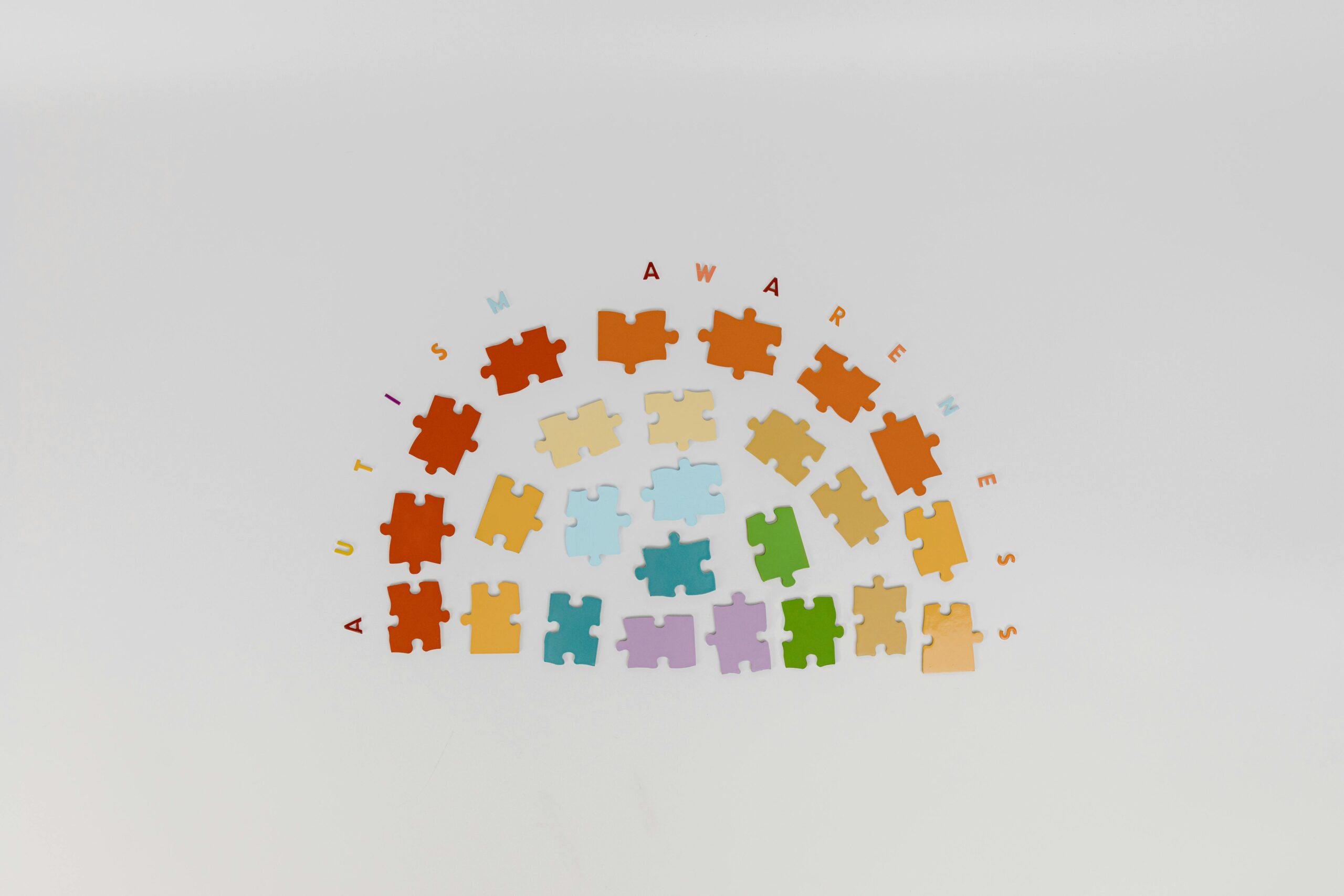
Understanding Codependency and Addiction in California Families
Medically Reviewed by:

Dr. Marco M. Zahedi
Medical Director, Compassion Recovery Center

Dr. Michael Majeski
Licensed Psychologist (LP), Compassion Recovery Center
Table of Contents
Understanding the Intertwined Challenges of Codependency and Addiction
Living with addiction is an incredibly challenging experience, not just for the individual struggling with substance use, but for their entire family. In many families, another complex issue often walks hand-in-hand with addiction: codependency. Codependency is a pattern of behavior where a person’s self-esteem and emotional well-being are overly reliant on another person, often the one struggling with addiction. They might find themselves enabling the addiction, neglecting their own needs, and becoming trapped in a cycle of caretaking that, while well-intentioned, can prevent real healing. Addiction, on the other hand, is a chronic, relapsing brain disorder characterized by compulsive drug seeking and use despite harmful consequences. Understanding how these two conditions intersect is crucial for families, especially within the unique context of California, to find effective paths toward recovery for everyone involved.
In California, families face a multitude of pressures, from economic stresses to societal expectations, which can sometimes exacerbate these hidden struggles. Recognizing the signs of codependency and its link to addiction is the first brave step towards breaking these unhealthy patterns. At Compassion Recovery Center, we specialize in providing Virtual IOP Program services and other remote drug and alcohol rehab options. Our telehealth platform is designed to bring expert care directly to individuals and families throughout Orange County and across California, offering a flexible, confidential, and compassionate approach to healing. We believe that understanding these dynamics is key, and our mission is to empower you with knowledge and support. If you or a loved one are navigating these difficult waters, we encourage you to contact us for a confidential assessment and learn how we can help.

Defining and Recognizing Codependency in Family Systems
Codependency is a term often heard in discussions about addiction, but what does it truly mean? At its core, codependency is an emotional and behavioral condition that affects an individual’s ability to have a healthy, mutually satisfying relationship. It’s often characterized by a person belonging to a dysfunctional family system who is overly focused on meeting the needs of others, to the detriment of their own. This isn’t just being “nice” or “caring”; it’s a pattern where one’s identity and self-worth become entangled with caretaking, controlling, or rescuing another person, typically someone struggling with addiction, chronic illness, or irresponsibility.
Key characteristics of codependency can include:
- An exaggerated sense of responsibility for others’ actions and feelings: Believing you can control or “fix” someone else’s problems.
- Difficulty identifying one’s own feelings and needs: Prioritizing others so much that personal desires become unclear.
- A tendency to do more than their share, all the time: Over-functioning in relationships and tasks.
- Low self-esteem: Seeking external validation, often through pleasing others or being needed.
- Poor boundaries: Difficulty saying “no” or tolerating others’ disappointment.
- Fear of abandonment or being alone: Leading to clinging behavior or staying in unhealthy relationships.
- A need for control: Often manifesting as attempts to manage the behavior or feelings of others.
- Enabling behaviors: Shielding the person with addiction from the natural consequences of their actions.
Codependency often develops within family systems, particularly those affected by chronic stress, such as addiction, mental illness, or abuse. Children growing up in such environments may learn that their needs are secondary, or that their value comes from caretaking or keeping the peace. They might adapt by becoming hyper-vigilant to the moods and needs of others, learning to suppress their own emotions to survive. These learned behaviors can carry into adulthood, shaping how they form and maintain relationships. For example, if a parent was emotionally unavailable due to alcoholism, a child might grow up feeling responsible for that parent’s happiness, a pattern they then replicate in their adult partnerships. The impact on family dynamics is profound. Communication becomes indirect and often manipulative. Resentment builds as needs go unmet, and individual growth is stifled because family members are locked into rigid, unhealthy roles. Understanding these roots is a vital step in healing. If these patterns resonate with you, it’s important to know that support is available to explore treatment options and begin a journey towards healthier relationships.
The Destructive Dance: How Codependency Fuels Addiction
The connection between codependency and addiction is a deeply complex and often destructive cycle. While codependency doesn’t directly cause addiction, it can create an environment where addiction is more likely to take root, persist, and worsen. Codependent behaviors, though frequently stemming from love and a desire to help, can inadvertently enable the person struggling with substance use, preventing them from facing the full consequences of their actions and thus delaying their motivation to seek help.
Imagine a dance where one partner (the person with addiction) leads with problematic behaviors, and the other partner (the codependent individual) consistently adjusts their steps to accommodate, smooth over, or cover up those behaviors. This is the cycle of codependency and addiction. The person with addiction might experience negative outcomes – job loss, legal issues, health problems – but the codependent family member steps in to “fix” things. They might pay off debts, make excuses to employers, or lie to protect the person from shame or legal trouble. While these actions are often driven by fear and a desperate hope to maintain normalcy, they strip away the natural learning process that consequences provide. This enabling shields the individual from the very experiences that could motivate them to change.
Here are some common examples of codependent behaviors in families struggling with addiction:
- Making excuses for the person’s behavior: “They’re just under a lot of stress,” or “It’s not that bad.”
- Covering up or minimizing the problem: Hiding alcohol bottles, lying to friends or other family members about the extent of the substance use.
- Taking on their responsibilities: Paying their bills, doing their chores, calling in sick for them at work.
- Blaming external factors or even oneself for the addiction: “If I were a better spouse/parent, they wouldn’t need to drink/use.”
- Prioritizing the needs and moods of the person with addiction above everyone else’s, including their own.
- Avoiding confrontation about the substance use for fear of conflict or abandonment.
- Experiencing significant emotional distress (anxiety, depression) tied directly to the other person’s substance use and behavior, yet feeling powerless to change their own responses.
This cycle is exhausting and damaging for everyone involved. The person with addiction may become more entrenched in their substance use, while the codependent individual becomes increasingly stressed, resentful, and isolated, often neglecting their own mental and physical health. Breaking this cycle requires both the individual with addiction and the codependent family members to seek help and learn new, healthier ways of relating. If you recognize this pattern in your family, it’s time to consider how to start your recovery journey today, not just for your loved one, but for yourself as well. Compassion Recovery Center offers support for individuals and families caught in this cycle, helping you to understand these dynamics and build healthier futures. You can easily verify your insurance online to see what services are covered.

Codependency and Addiction: The California Context
California, with its diverse population, vibrant culture, and often fast-paced lifestyle, presents a unique landscape for families grappling with codependency and addiction. While these issues are universal, certain factors within the Golden State can influence their prevalence and the challenges families face in seeking help. Statistics consistently show that California, like many other states, struggles with significant rates of substance use disorders. According to the California Health Care Foundation, millions of Californians report needing treatment for alcohol or illicit drug use but do not receive it. This widespread issue inevitably impacts family systems, creating fertile ground for codependent patterns to emerge and persist.
Families in California, particularly in high-pressure areas like Orange County, may face unique challenges. The high cost of living can create immense financial stress, potentially leading individuals to unhealthy coping mechanisms like substance use, and family members to over-function in codependent ways to maintain stability. The “always-on” culture and societal pressure for success can also make it difficult for individuals to admit vulnerability or seek help, fostering an environment where problems are hidden rather than addressed. For some, the perceived glamour or normalization of substance use in certain social circles can also lower barriers to problematic consumption and make it harder for families to recognize when use becomes abuse.
Cultural and social factors within California’s diverse communities also play a significant role. Different cultural backgrounds have varying perspectives on family roles, substance use, and help-seeking behaviors. In some cultures, there may be a strong emphasis on family loyalty and privacy, which can make it difficult to acknowledge problems like addiction or codependency outside the immediate family. Stigma surrounding mental health and addiction, though decreasing, still exists and can prevent individuals and families from accessing resources. This is where accessible and confidential services, like the remote drug rehab Orange County options offered by Compassion Recovery Center, become particularly vital. We aim to bridge these gaps, providing culturally sensitive care that meets families where they are.
Furthermore, the sheer size and geographic diversity of California mean that access to in-person treatment facilities can be a challenge for those in more remote areas or those with demanding schedules. This highlights the importance of telehealth solutions in making recovery support more readily available. Understanding these specific Californian contexts helps tailor interventions and support systems, ensuring that families receive care that is not only effective but also acknowledges their unique circumstances. If your family is navigating these complex issues, we encourage you to reach out today. We offer specialized Drug Rehab Programs and Alcohol Rehab Programs designed for the needs of California residents.
Unmasking Codependency: Identifying the Signs in Your Family
Recognizing codependency within a family can be difficult, as its patterns are often deeply ingrained and mistaken for love, loyalty, or simply “being a good family member.” However, these behaviors, while often well-intentioned, create an unhealthy dynamic that can stifle individual growth and perpetuate addiction. Learning to identify the signs and symptoms is a crucial first step towards healing for everyone involved.
What are some common signs of codependency in family members?
- An unhealthy focus on the person with addiction: Their life revolves around the moods, behaviors, and needs of the person struggling with substance use. Their own hobbies, interests, and well-being take a backseat.
- Difficulty saying “no”: They may feel guilty or fearful when setting boundaries, often agreeing to things they don’t want to do or that are detrimental to their own health or the recovery process.
- Poor emotional boundaries: They absorb the emotions of the person with addiction, feeling anxious when they are anxious, or depressed when they are depressed. It’s hard to separate their own feelings from others’.
- A need to be needed: Their self-worth is often tied to being indispensable to the person with addiction. The idea of that person becoming independent and not needing them can be unconsciously threatening.
- Making excuses and covering up: As mentioned earlier, they might lie to employers, friends, or other family members to hide the extent of the addiction or protect the individual from consequences.
- Neglecting personal needs and health: Stress-related illnesses, anxiety, depression, and exhaustion are common as they pour all their energy into managing the addiction and the person involved.
- Trying to control the uncontrollable: They might try to control the person’s substance use (e.g., hiding alcohol, counting pills) or their behavior, leading to immense frustration and feelings of failure.
- Fear of abandonment: This fear can drive them to tolerate unacceptable behavior to avoid being left alone or having the family unit dissolve.
Recognizing codependent relationships often involves looking at the overall dynamic. Is the relationship one-sided, with one person consistently giving and the other consistently taking? Is there a lack of personal identity outside of the relationship for one or more members? Do conversations constantly revert to the problems or needs of one particular individual? These can all be indicators.
The impact of codependency on children and other family members can be particularly damaging. Children growing up in codependent families with addiction may learn that their needs are unimportant, that they must be “perfect” or “invisible” to avoid causing more stress. They may develop anxiety, depression, or carry these codependent traits into their own adult relationships, perpetuating the cycle. Other adult family members might feel neglected, resentful, or develop their own unhealthy coping mechanisms. It’s a ripple effect that touches everyone. If you see these signs in your family, it’s not a sign of failure, but an opportunity for growth and healing. Consider taking a start your free assessment with us to explore these dynamics further. Understanding is the first step, and compassionate support is available. Please contact us for a confidential assessment; we are here to help your family find a healthier path forward.
Pathways to Healing: Treatment for Codependency and Addiction
When codependency and addiction have taken root in a family, it can feel overwhelming, as if there’s no way out. But healing is possible. California offers a range of treatment options designed to address both the substance use disorder and the underlying codependent patterns that fuel it. The key is to find a comprehensive approach that supports not only the individual with the addiction but also the family members affected by these dynamics.
Treatment typically involves several modalities, which can include:
- Individual Therapy: For both the person with addiction and codependent family members. This provides a safe space to explore personal issues, trauma, and develop healthier coping mechanisms.
- Group Therapy: Offers peer support and shared experiences, reducing feelings of isolation. Groups can focus on addiction recovery, codependency issues, or both.
- Family Therapy: Crucial for addressing the family system as a whole. It helps improve communication, set healthy boundaries, and restructure unhealthy roles and dynamics.
- Educational Programs: Learning about addiction, codependency, enabling, and healthy family functioning is empowering for all involved.
One highly effective approach, particularly for those needing structured support while maintaining daily responsibilities, is an Intensive Outpatient Program (IOP). IOPs provide several hours of therapy and psychoeducation multiple days a week, offering a higher level of care than standard outpatient therapy without requiring residential commitment. At Compassion Recovery Center, our Virtual IOP Program is specifically designed to treat codependency and addiction concurrently. This remote format makes it an accessible Remote IOP California solution, especially beneficial for busy individuals and families in areas like Orange County.
A cornerstone of effective treatment for codependency is Cognitive Behavioral Therapy (CBT). CBT is an evidence-based approach that helps individuals identify, challenge, and change negative thought patterns and behaviors that contribute to codependency and addiction. For someone struggling with codependency, CBT can help them:
- Recognize and reframe distorted thoughts like “I am responsible for their happiness” or “If I don’t help them, something terrible will happen.”
- Develop assertiveness skills to set healthy boundaries.
- Improve self-esteem and self-care practices.
- Learn to manage difficult emotions without resorting to controlling or enabling behaviors.
It’s important to remember that recovery is a journey, not a destination. For families impacted by codependency and addiction, treatment provides the map and the tools, but the commitment to change comes from within each individual and the family unit. If you are ready to explore these pathways, we invite you to learn more about our virtual IOP and other treatment services. We also offer Partial Hospitalization Program (PHP) options for those who may need a more intensive level of care while still benefiting from a remote format.
The Rise of Telehealth: Accessible Solutions for California Families
In today’s interconnected world, healthcare is evolving, and addiction treatment is no exception. Telehealth, the delivery of healthcare services remotely using telecommunications technology, has emerged as a powerful tool in making treatment for codependency and addiction more accessible, convenient, and private for families across California. This is particularly beneficial in a sprawling state where geographic distances, busy schedules, and the desire for discretion can be significant barriers to seeking help.
The advantages of telehealth addiction treatment are numerous:
- Accessibility: Individuals in rural areas or those with limited mobility can access specialized care without the need for extensive travel. For families in bustling urban centers like Orange County, it eliminates commute times and makes fitting therapy into a packed schedule more manageable.
- Convenience and Flexibility: Therapy sessions can be attended from the comfort and privacy of one’s own home. This flexibility is invaluable for parents, working professionals, or anyone juggling multiple responsibilities. Our virtual IOP fits into a busy schedule seamlessly.
- Privacy and Reduced Stigma: Seeking treatment remotely can feel less intimidating for those concerned about the stigma associated with addiction or mental health issues. Attending sessions from home offers a greater degree of anonymity.
- Continuity of Care: Telehealth can support ongoing recovery, making it easier to stay connected with therapists and support groups even if life circumstances change (e.g., moving, travel).
- Family Involvement: Virtual platforms can make it easier to coordinate and conduct family therapy sessions, even if family members live in different locations.
Compassion Recovery Center is at the forefront of leveraging these benefits. We utilize a secure, user-friendly telehealth platform to deliver our comprehensive Virtual IOP Program, individual counseling, group therapy, and family sessions. Our virtual rehab California services ensure that high-quality, evidence-based care is available to those who need it, regardless of their physical location within the state. From initial assessment to ongoing aftercare planning, our team is dedicated to providing compassionate and effective remote treatment.
Success stories of remote treatment in California are growing. Many individuals and families have found that telehealth provides the perfect balance of structured support and real-world integration. They can learn coping skills in therapy and immediately apply them in their home environment, strengthening their recovery in a practical way. Clients often report feeling more comfortable opening up from their own space, leading to deeper therapeutic work. The ability to maintain employment and family commitments while receiving intensive treatment is a game-changer for many. If you’ve been hesitant to seek help due to logistical challenges or privacy concerns, telehealth might be the solution you’ve been looking for. We encourage you to explore our Admissions Information page to learn more or get help now by reaching out to our team. We understand the challenges and are here to make the process as smooth as possible.
Medication-Assisted Treatment (MAT) in the Context of Codependency and Addiction
Medication-Assisted Treatment (MAT) is an evidence-based approach that combines FDA-approved medications with counseling and behavioral therapies to treat substance use disorders, primarily those involving opioids and alcohol. MAT has proven to be highly effective in reducing cravings, preventing relapse, and supporting individuals in their journey toward sustained recovery. While MAT directly addresses the physiological aspects of addiction for the individual using substances, its benefits can extend to the entire family system, particularly in dynamics complicated by codependency.
How does MAT work? For opioid addiction, medications like buprenorphine (Suboxone), naltrexone, or methadone can help normalize brain chemistry, block the euphoric effects of opioids, relieve physiological cravings, and normalize body functions without the negative effects of the abused drug. For alcohol addiction, medications like naltrexone, acamprosate, and disulfiram can help reduce cravings, manage withdrawal symptoms, or produce unpleasant effects if alcohol is consumed, thereby discouraging drinking.
The critical point is that MAT is not simply “replacing one drug with another.” It is a comprehensive treatment strategy that, when properly managed by medical professionals and combined with therapy, gives individuals a crucial tool to manage their addiction. This stability can have a profound impact on family members struggling with codependency. When the person with addiction is more stable, experiencing fewer cravings, and less likely to engage in erratic, crisis-driven behavior, it can create a calmer environment. This calmness provides the codependent family member with the emotional and mental space needed to focus on their own recovery. When they are not constantly reacting to crises or trying to manage the unmanageable, they can begin to:
- Recognize their own codependent patterns: The reduction in chaos allows for greater self-reflection.
- Set healthier boundaries: It may feel safer and more feasible to establish boundaries when the loved one is more stable and receptive.
- Focus on self-care: Energy previously consumed by worry and crisis management can be redirected towards personal well-being.
- Engage more effectively in their own therapy: They can work on their issues without the constant distraction of their loved one’s active addiction.
At Compassion Recovery Center, we understand the vital role that MAT can play within a holistic treatment plan. We integrate MAT treatment online where clinically appropriate, offering it as part of our telehealth services. This means individuals can receive medical consultations, prescriptions (where permissible via telehealth regulations), and ongoing management of their MAT regimen remotely, alongside their therapeutic programming. This approach ensures that both the biological and psychosocial aspects of addiction are addressed, creating a stronger foundation for recovery for the individual and a healthier dynamic for the family. If you’re considering treatment options and want to understand if MAT could be beneficial, please contact us to discuss our comprehensive Alcohol Rehab Programs and Drug Rehab Programs.
Healing Together: The Role of Couples Therapy and Family Support
Addiction and codependency don’t just affect individuals; they are relational problems that profoundly impact the entire family system, especially partnerships. Therefore, healing often requires a relational approach. Couples therapy and robust family support are integral components of a comprehensive recovery plan, helping to untangle the unhealthy dynamics and rebuild relationships on a foundation of honesty, respect, and mutual support.
The importance of couples therapy in addressing codependency and its intersection with addiction cannot be overstated. When one partner struggles with addiction and the other with codependent patterns, the relationship often becomes a primary arena where these issues play out. Virtual couples counseling rehab can provide a structured, guided space for partners to:
- Improve Communication: Learn to express needs, feelings, and concerns assertively and respectfully, rather than through blame, withdrawal, or manipulation.
- Identify and Change Unhealthy Patterns: Recognize how addiction and codependency have shaped their interactions and collaboratively work to establish new, healthier ways of relating. This includes addressing enabling behaviors from the codependent partner and taking responsibility from the partner in recovery.
- Rebuild Trust: Addiction often erodes trust. Therapy can facilitate a process for rebuilding it through honesty, accountability, and consistent effort from both partners. You may find our article on rebuilding trust after addiction helpful.
- Set Healthy Boundaries: Define individual and relational boundaries that protect each person’s well-being and support the recovery process.
- Develop Shared Goals for the Future: Work towards a vision of the relationship and family life free from the grip of addiction and codependency.
Family support, extending beyond the couple, is equally vital. When a family understands addiction as a disease and codependency as a learned pattern of coping, they are better equipped to offer constructive support rather than enabling. Family therapy sessions can educate members about these conditions, help them understand their roles in the family system, and teach them how to support their loved one’s recovery while also taking care of their own emotional health. This is particularly important for children in the family, who need age-appropriate information and reassurance. Learning how to support without enabling is a key skill that families can develop through guided therapy and education; our article on how to support a loved one in recovery without enabling them offers valuable insights.
Compassion Recovery Center recognizes that addiction is a family affair. We offer virtual couples counseling and family therapy sessions as part of our telehealth services. This remote format makes it easier for busy couples and geographically dispersed families in California to participate together. We believe that when families heal together, the chances of sustained recovery for everyone involved increase significantly. If your relationship or family dynamic has been strained by addiction and codependency, we encourage you to Contact Us for virtual couples counseling options and explore how we can support your collective healing journey. Sometimes, these issues co-occur with other mental health challenges, and understanding Dual Diagnosis Treatment can also be beneficial.
Breaking the Cycle: Steps to Overcome Codependency and Addiction
Overcoming the deeply ingrained patterns of codependency and addiction is a challenging but achievable journey. It requires commitment, courage, and a willingness from all affected family members to embrace change. For families in California, there are numerous resources and strategies that can help break this destructive cycle and pave the way for a healthier, more fulfilling future. The first step is often acknowledging the problem and understanding that help is needed – not just for the person with the substance use disorder, but for the entire family system.
What steps can families take to break the cycle?
- Education: Learn as much as possible about addiction as a disease and codependency as a relational pattern. Understanding the “why” behind behaviors can reduce blame and foster empathy. Reputable websites, books, and educational programs offered by treatment centers like Compassion Recovery Center can be invaluable.
- Seek Professional Help: This is crucial. Individual therapy for each affected family member, couples counseling, and family therapy can provide the tools and guidance needed to navigate change. A Remote IOP California program can offer structured support.
- Focus on Self-Care (for the Codependent Individual): Codependent individuals often neglect their own needs. Prioritizing self-care – physical health, emotional well-being, personal interests – is not selfish; it’s essential for recovery. This might involve exercise, mindfulness, hobbies, or simply taking time for oneself. Our blog offers tips on stress management tips for people in recovery.
- Set Healthy Boundaries: This is a cornerstone of overcoming codependency. Boundaries define what is acceptable and unacceptable behavior. Learning to say “no” and sticking to consequences for boundary violations is difficult but necessary. Our article on setting boundaries to protect your sobriety can be a good starting point for everyone involved.
- Practice Detachment with Love: This means caring about the person with addiction without trying to control them or shield them from the consequences of their actions. It involves allowing them to take responsibility for their own recovery journey.
- Develop a Support System: Connecting with others who understand can be incredibly healing. Support groups like Al-Anon (for families and friends of alcoholics), Co-Dependents Anonymous (CoDA), or Nar-Anon offer peer support and shared experiences. Building a sober support network is vital.
- Improve Communication Skills: Learn assertive, non-blaming communication techniques. Express feelings and needs directly and honestly.
- Acceptance: Accept that you cannot control another person’s choices or their addiction. You can only control your own responses and choices.
For families in California, resources are available. Compassion Recovery Center provides comprehensive telehealth services, including Intensive Outpatient Programs (IOP), individual, and family therapy, specifically designed to address these intertwined issues. There are also numerous community-based support groups throughout the state, many now offering virtual meetings, making them highly accessible.
We want to offer sincere encouragement and hope. The journey out of codependency and addiction is not easy, and there may be setbacks. However, with dedication, the right support, and new skills, families can break free from these painful cycles. Healing can lead to stronger individuals, healthier relationships, and a family dynamic built on respect, autonomy, and genuine love. If you’re ready to take that brave first step, Admissions Information is available on our website, or you can start your recovery journey today by reaching out to us.
Embracing a Healthier Future: Your Path Forward with Compassion
Throughout this discussion, we’ve explored the complex and often painful interplay between codependency and addiction, particularly as it impacts families in California. We’ve seen how codependency, characterized by an unhealthy focus on another’s needs and a loss of self, can inadvertently enable addiction, creating a cycle that is difficult to break without intervention. From understanding the core characteristics of codependency and its development within family systems, to recognizing its specific manifestations alongside addiction in the California context, the journey to awareness is the first critical step.
We’ve highlighted that identifying these patterns, while challenging, opens the door to effective treatment options. In California, these include individual, group, and family therapies, with programs like our Virtual IOP Program offering structured, flexible support. The rise of telehealth, a cornerstone of Compassion Recovery Center’s approach, has revolutionized access to care, making remote drug rehab Orange County and statewide services a viable and effective solution for many. We’ve also touched upon the role of Medication-Assisted Treatment (MAT) in stabilizing individuals with addiction, which in turn can create the necessary space for families to address codependent dynamics. Furthermore, the importance of specialized therapies like virtual couples counseling rehab and dedicated family support cannot be overstated in healing relationships and fostering systemic change.
The path to overcoming codependency and addiction involves education, professional help, setting healthy boundaries, prioritizing self-care, and building strong support networks. It is a journey of transformation for every member of the family.
If you or your family are struggling with these intertwined issues, please know that you are not alone, and help is available. Healing is possible, and a healthier, more fulfilling future is within reach. Compassion Recovery Center is dedicated to providing accessible, empathetic, and expert care to individuals and families throughout California. Our telehealth platform ensures that you can receive the support you need from the comfort and privacy of your own home. We urge you to take the courageous step of seeking help. Whether you are just beginning to explore these issues or are ready to commit to a treatment program, we are here to guide you.
We invite you to Contact Us today for a confidential consultation. Let us answer your questions, address your concerns, and help you understand how our programs can support your family’s journey to recovery. You can also start your free assessment online to begin the process. At Compassion Recovery Center, we believe in empowering families with the tools and support they need to break free from the cycle of addiction and codependency and build a future filled with hope, health, and stronger connections.
What are the signs of codependency in a family?
How does codependency affect addiction recovery?
What treatment options are available for codependency in California?
How can telehealth services help with addiction and codependency?
What is the role of family support in overcoming addiction?
Struggling to balance life while needing support? Get expert virtual care and start your recovery journey, anytime, anywhere.
We’re learning more each day.
Researchers and doctors are making exciting progress in understanding mental health and addiction—bringing hope to millions.
Your genes don’t define you.
Genetics can play a part, but they don’t decide your future. Mental health is shaped by many factors, and healing is always possible.
There's no one-size-fits-all.
The right treatment often includes a mix of therapy, medication, and compassionate care—tailored just for you.


















